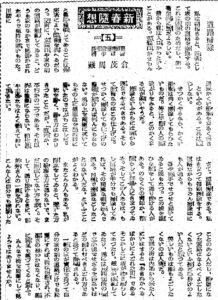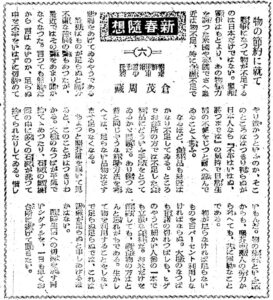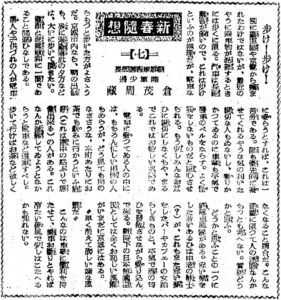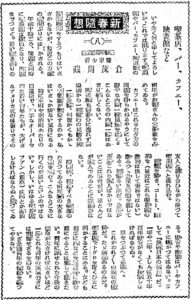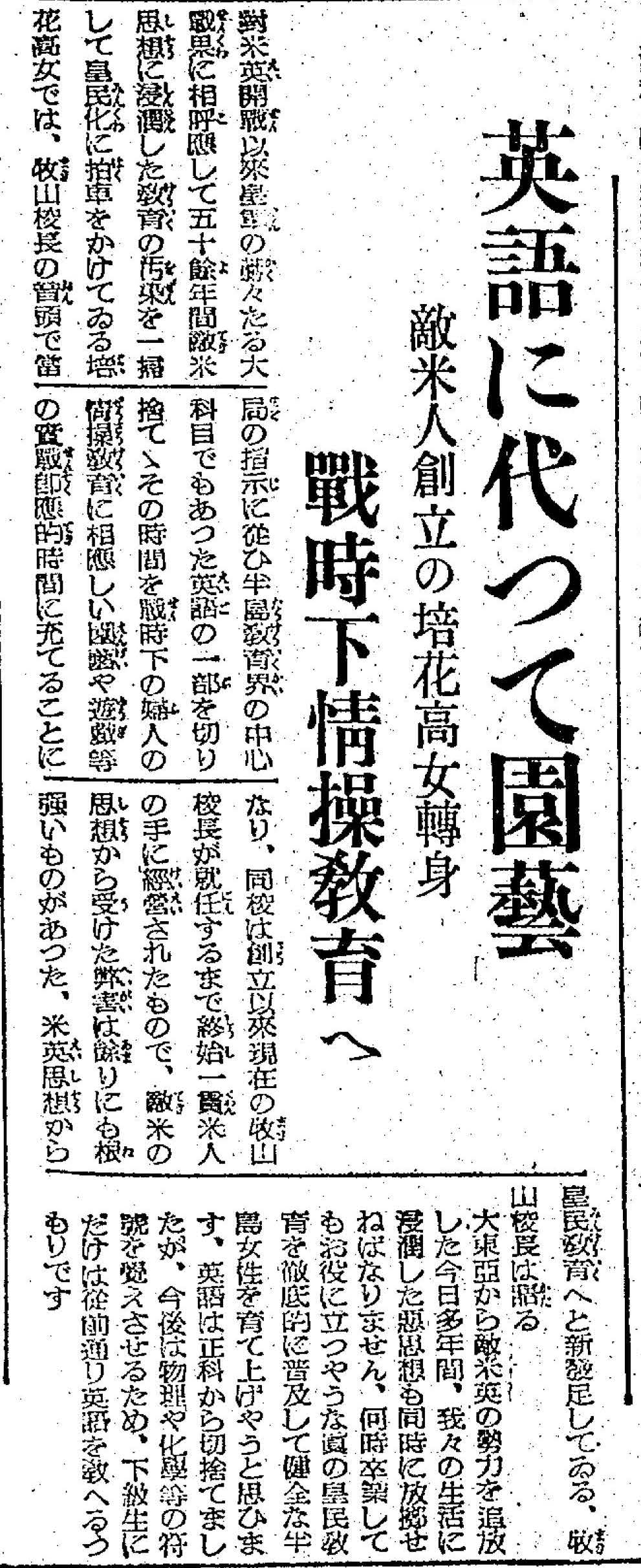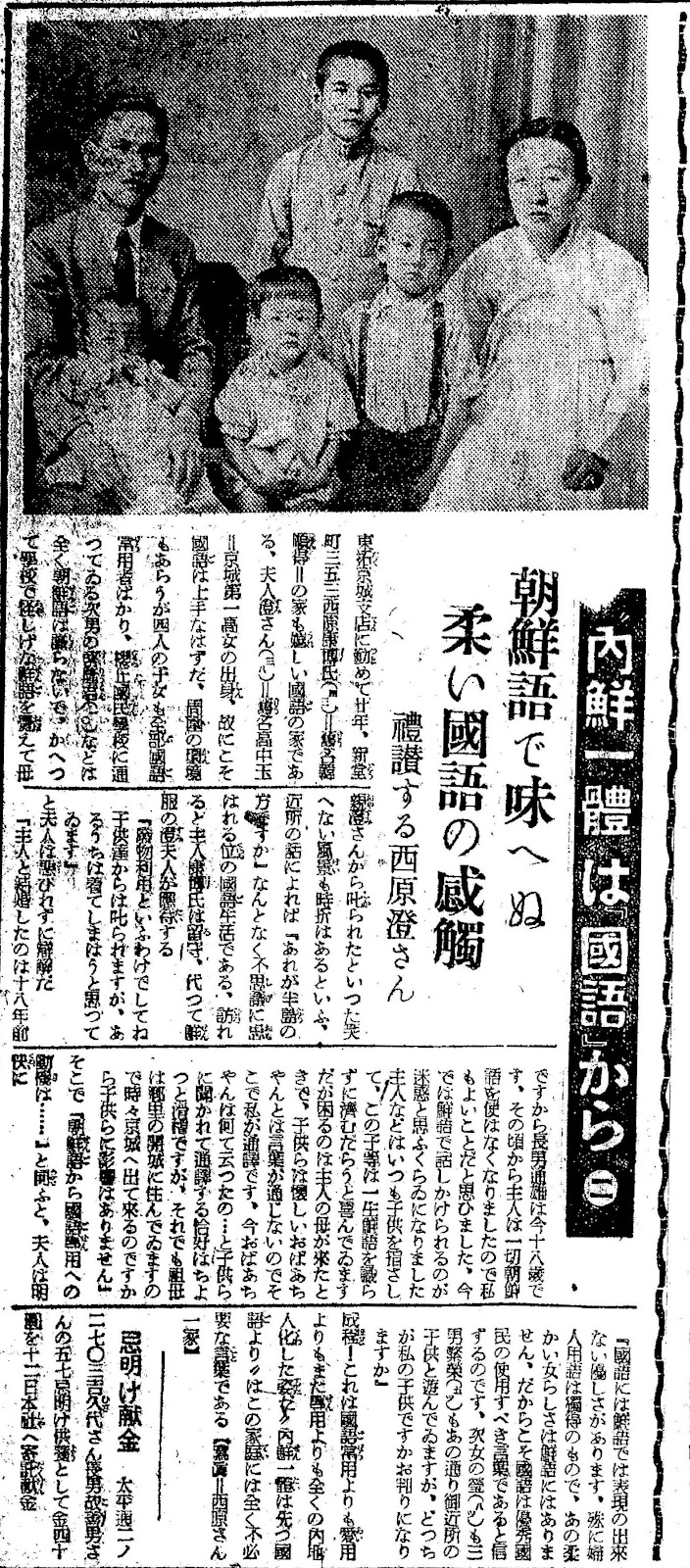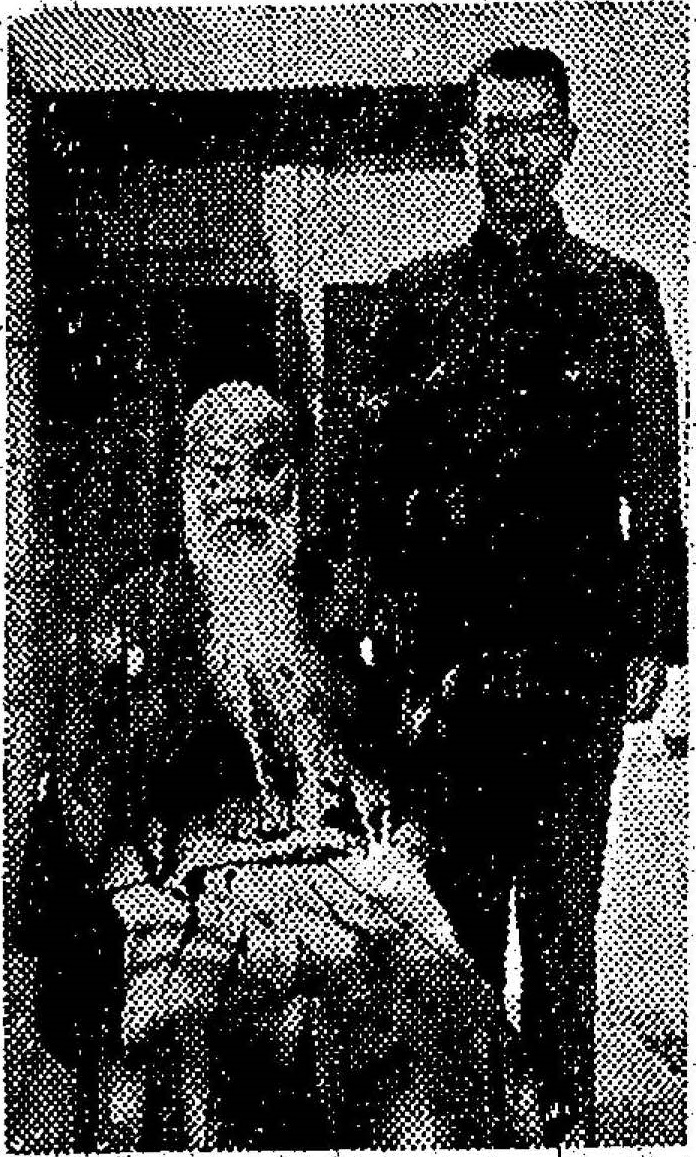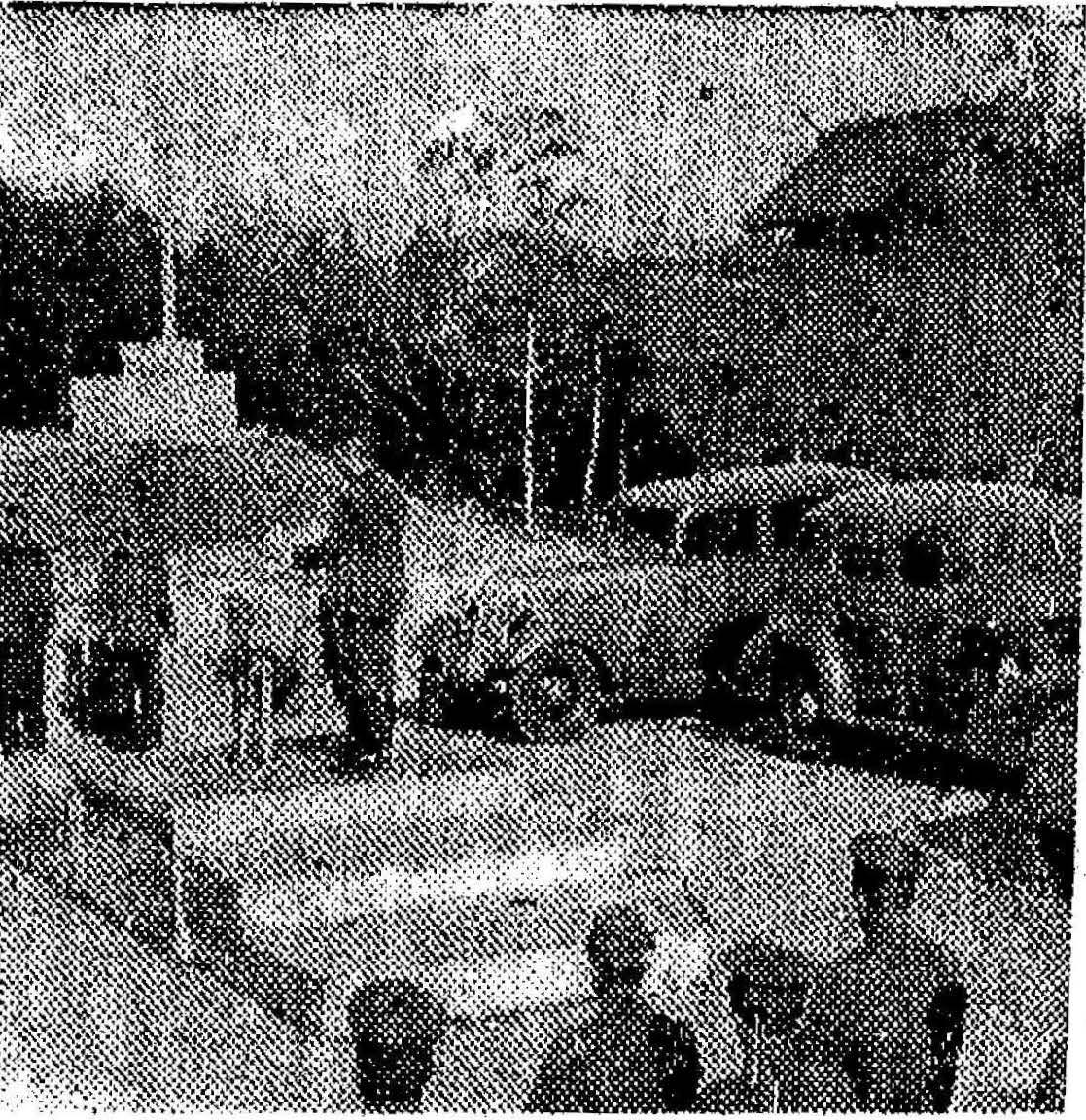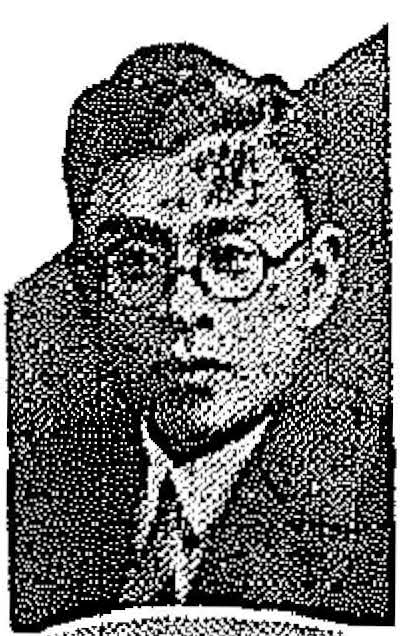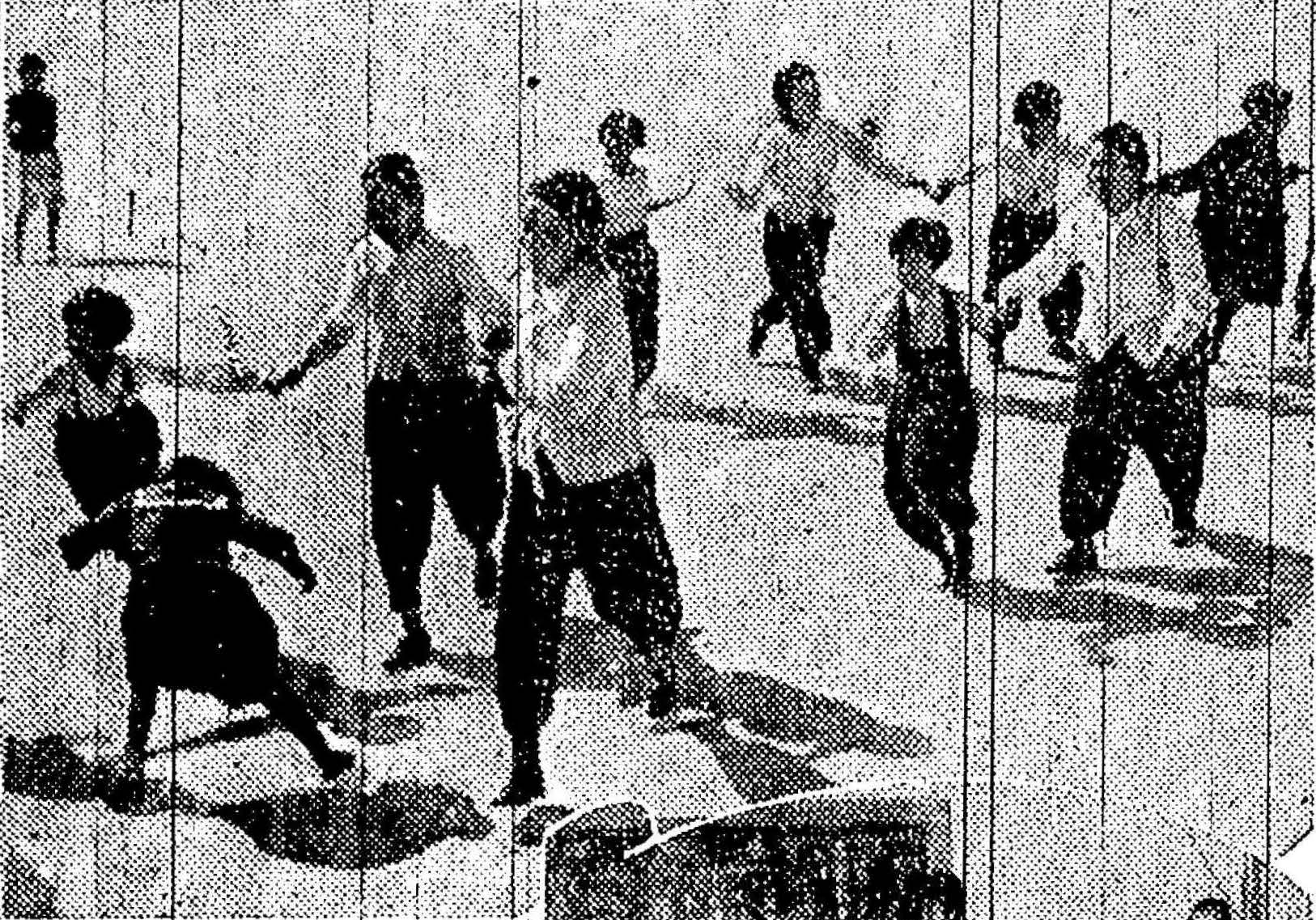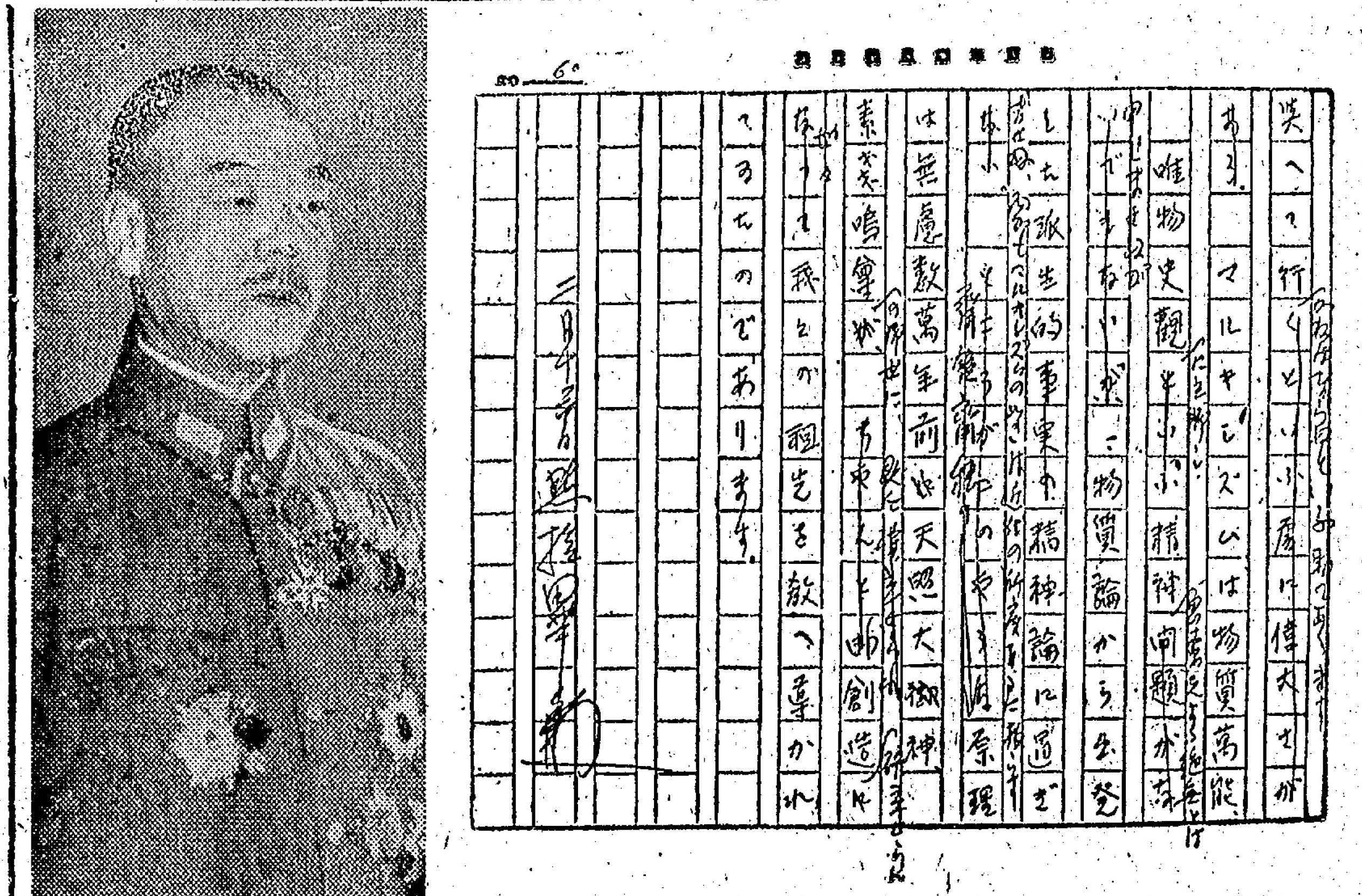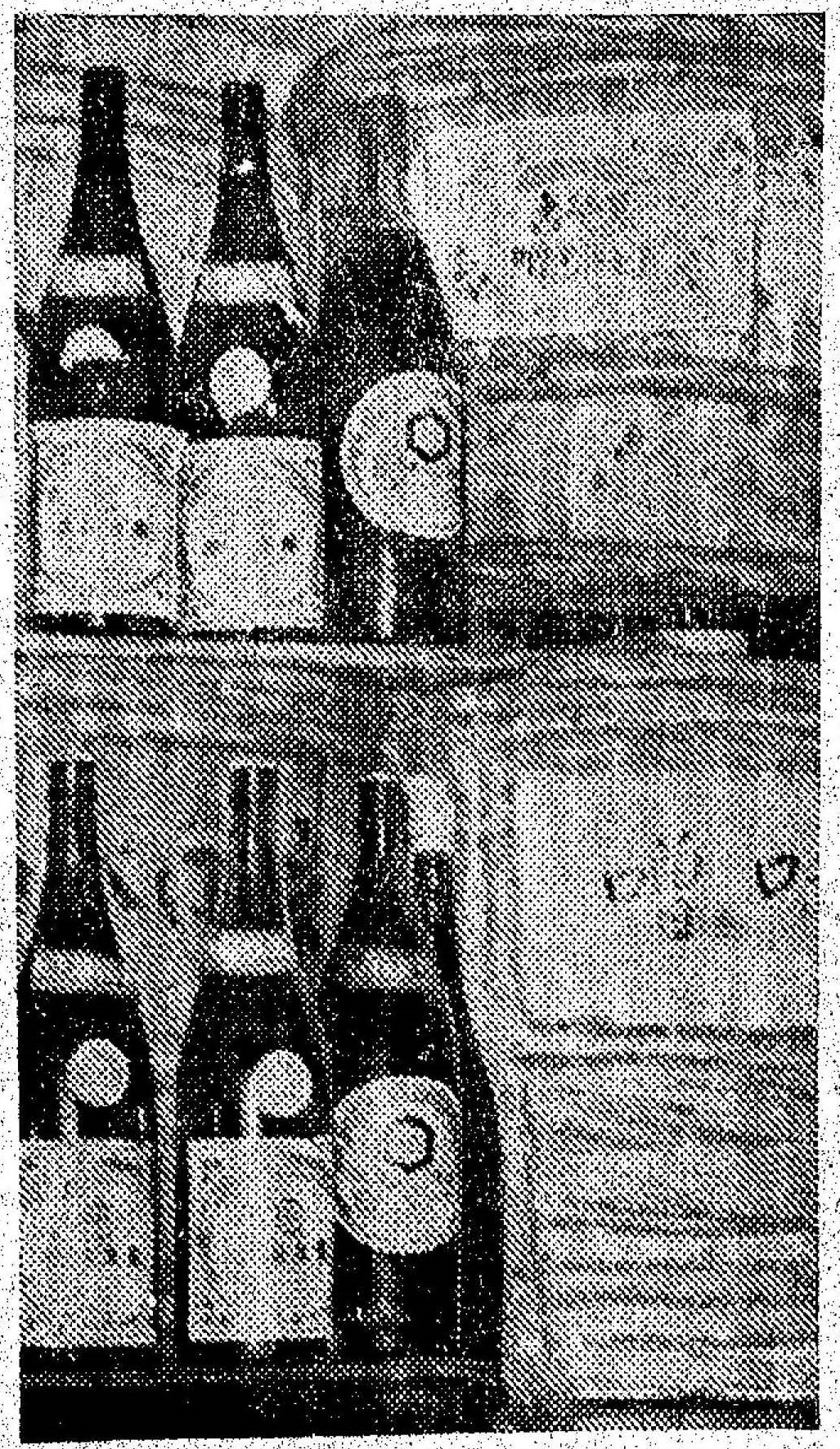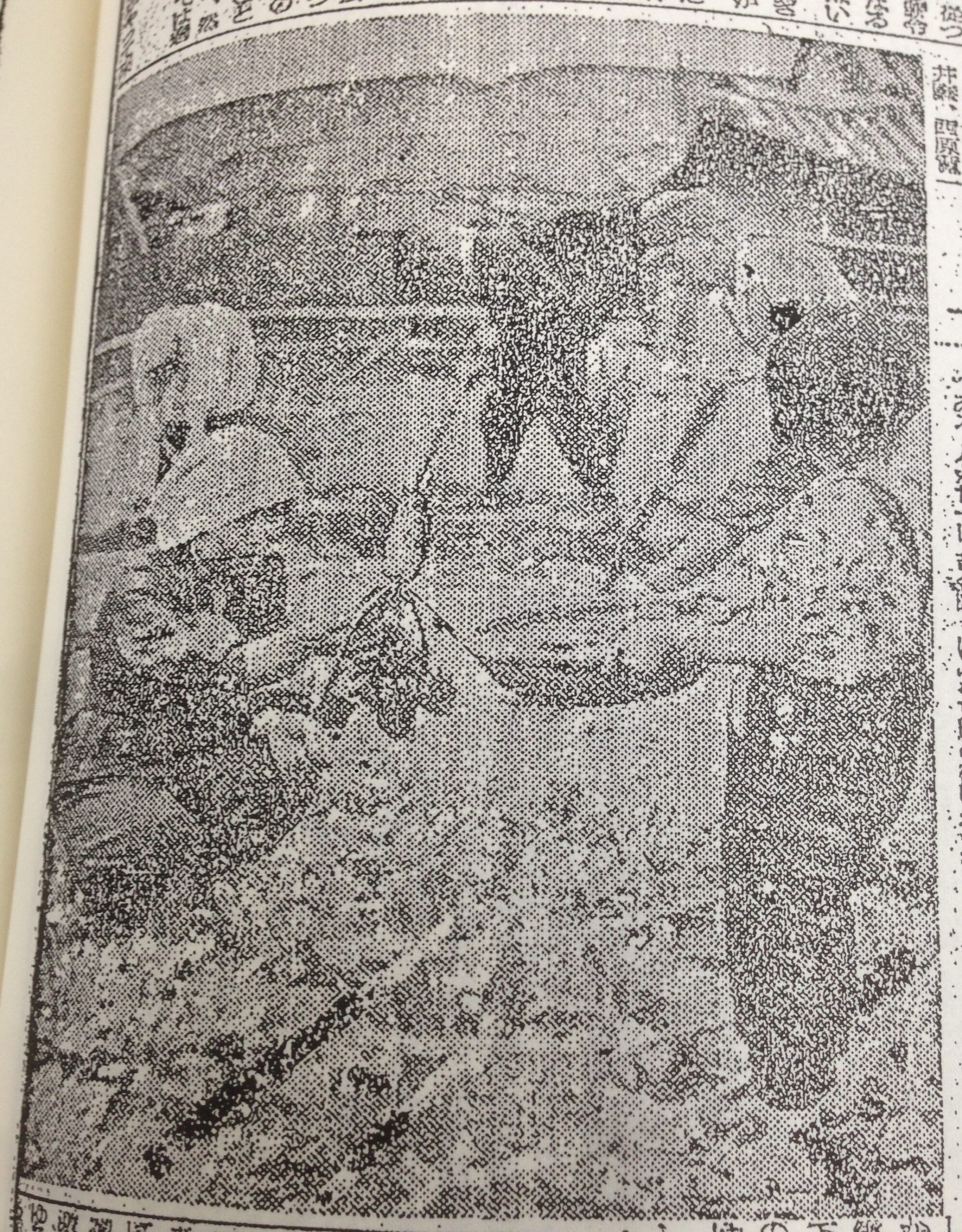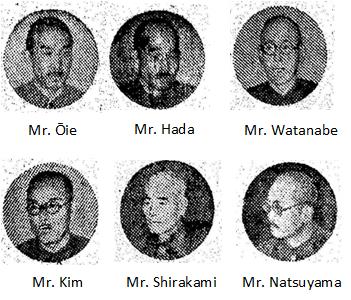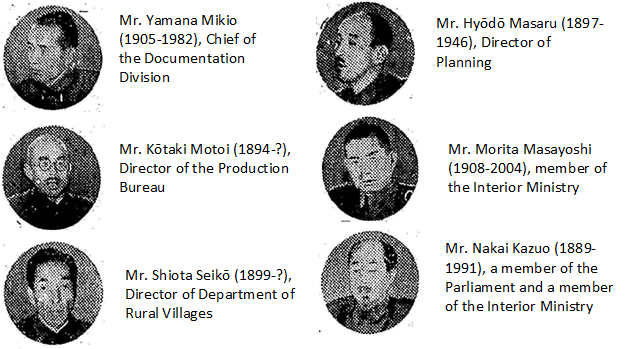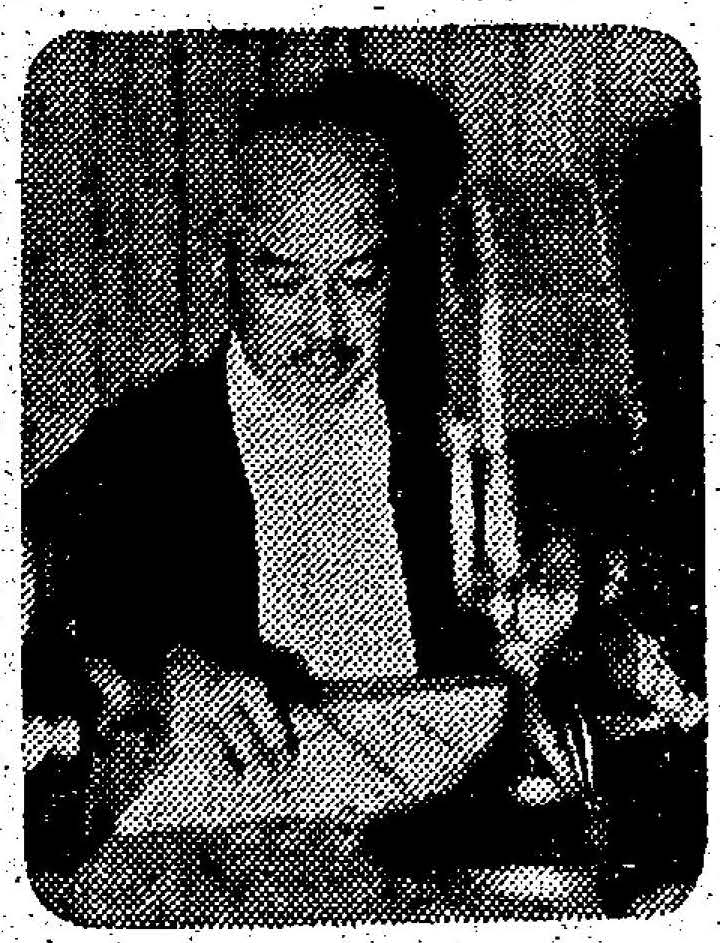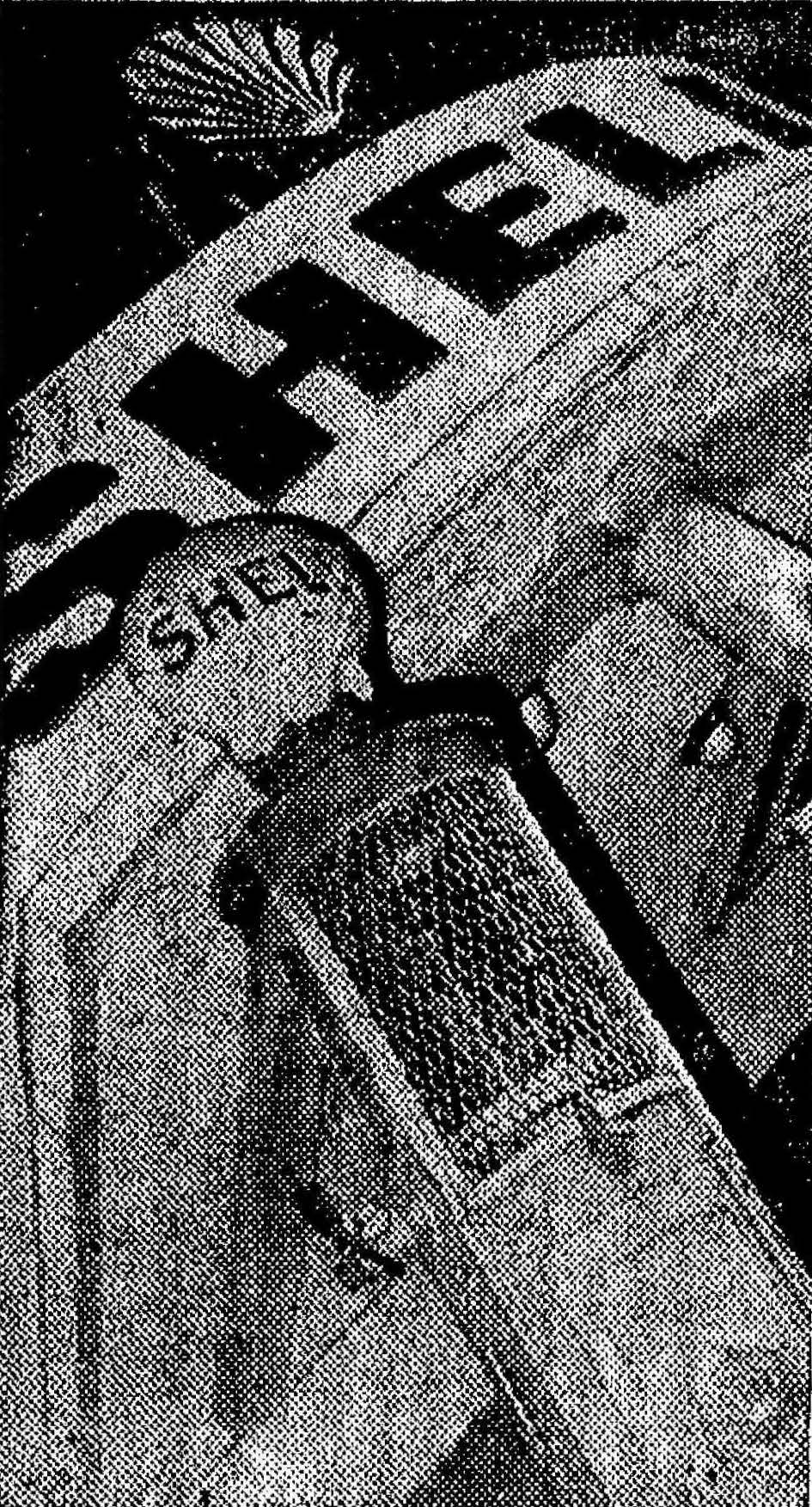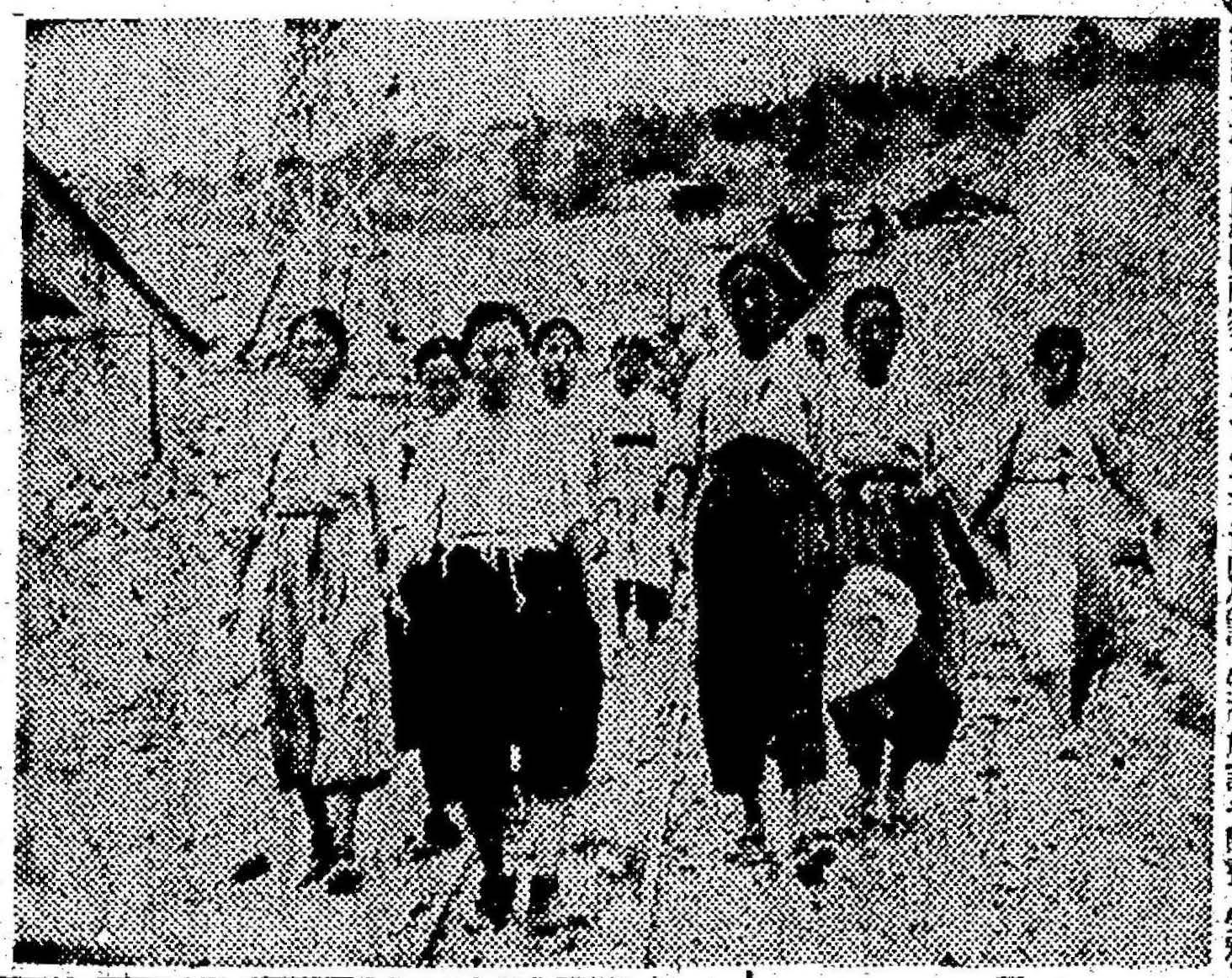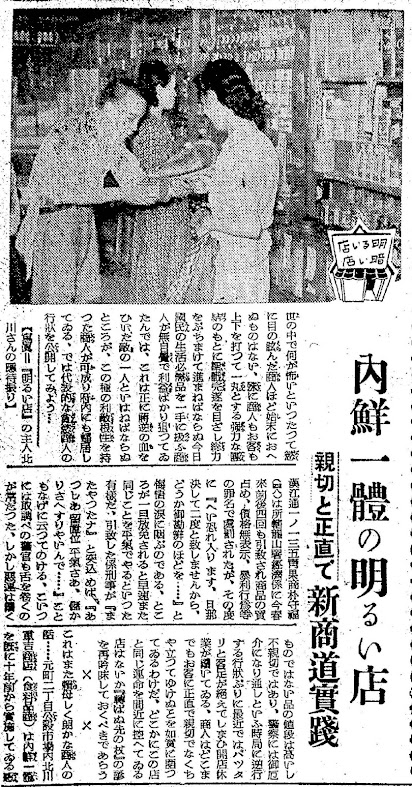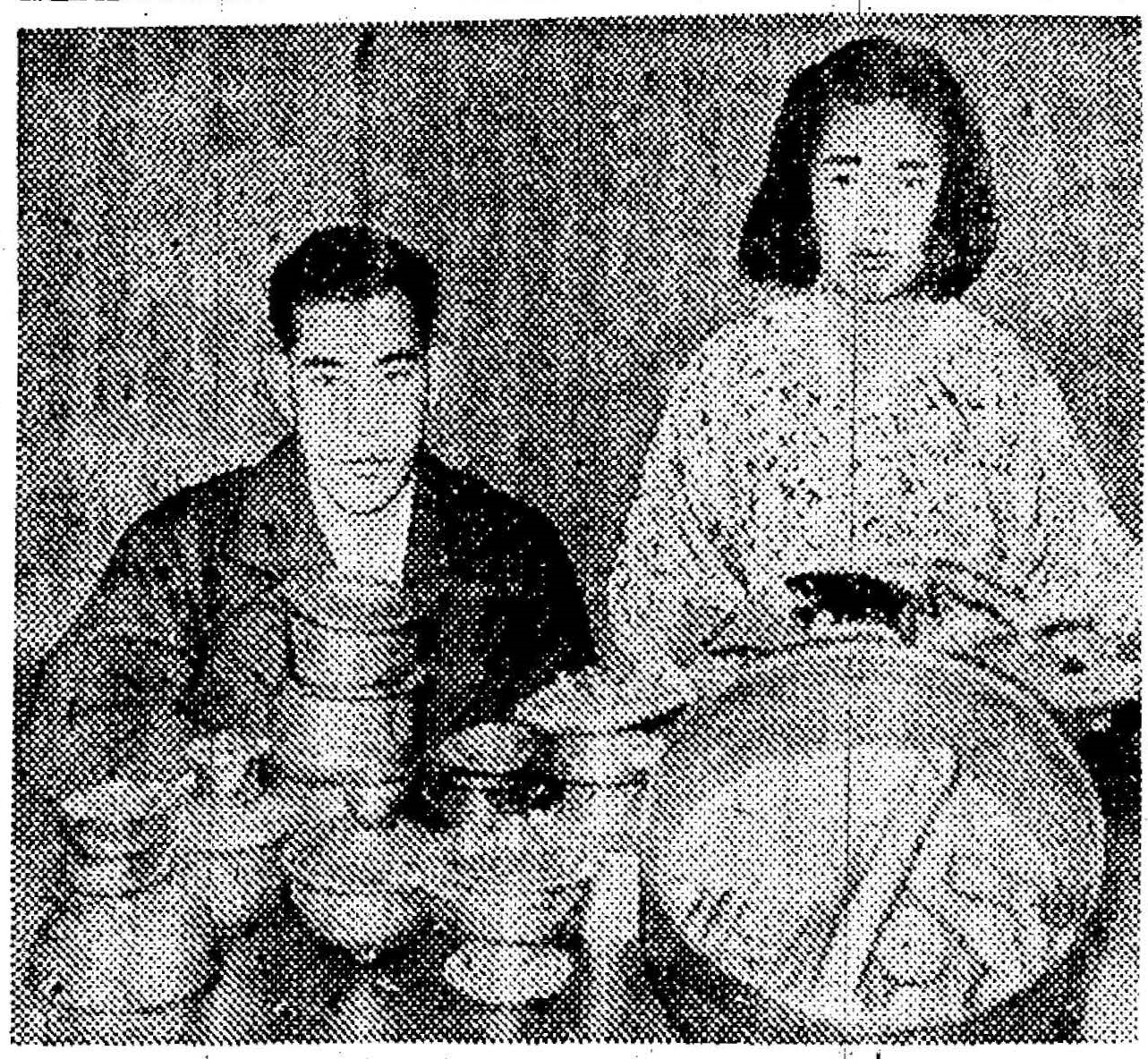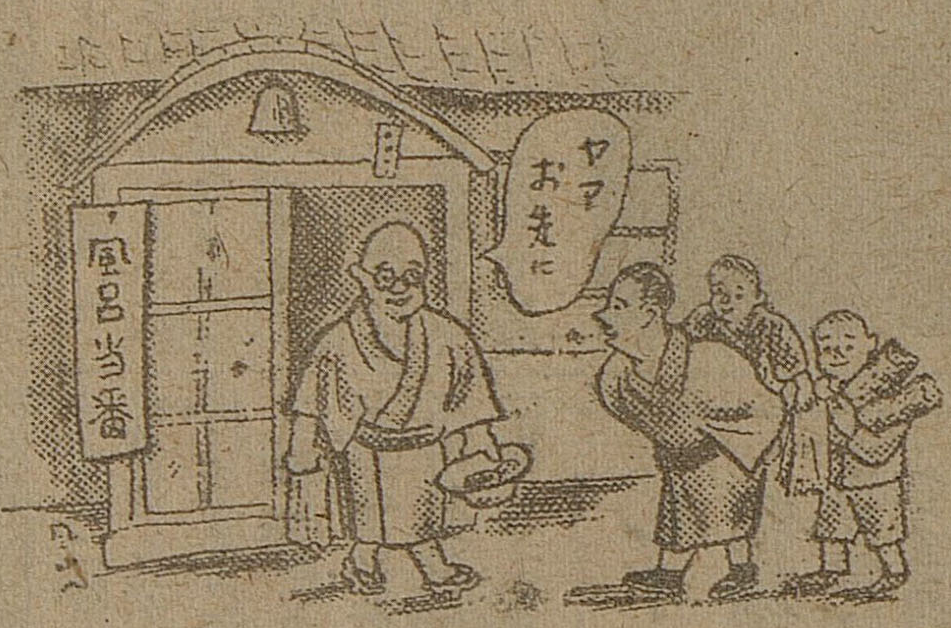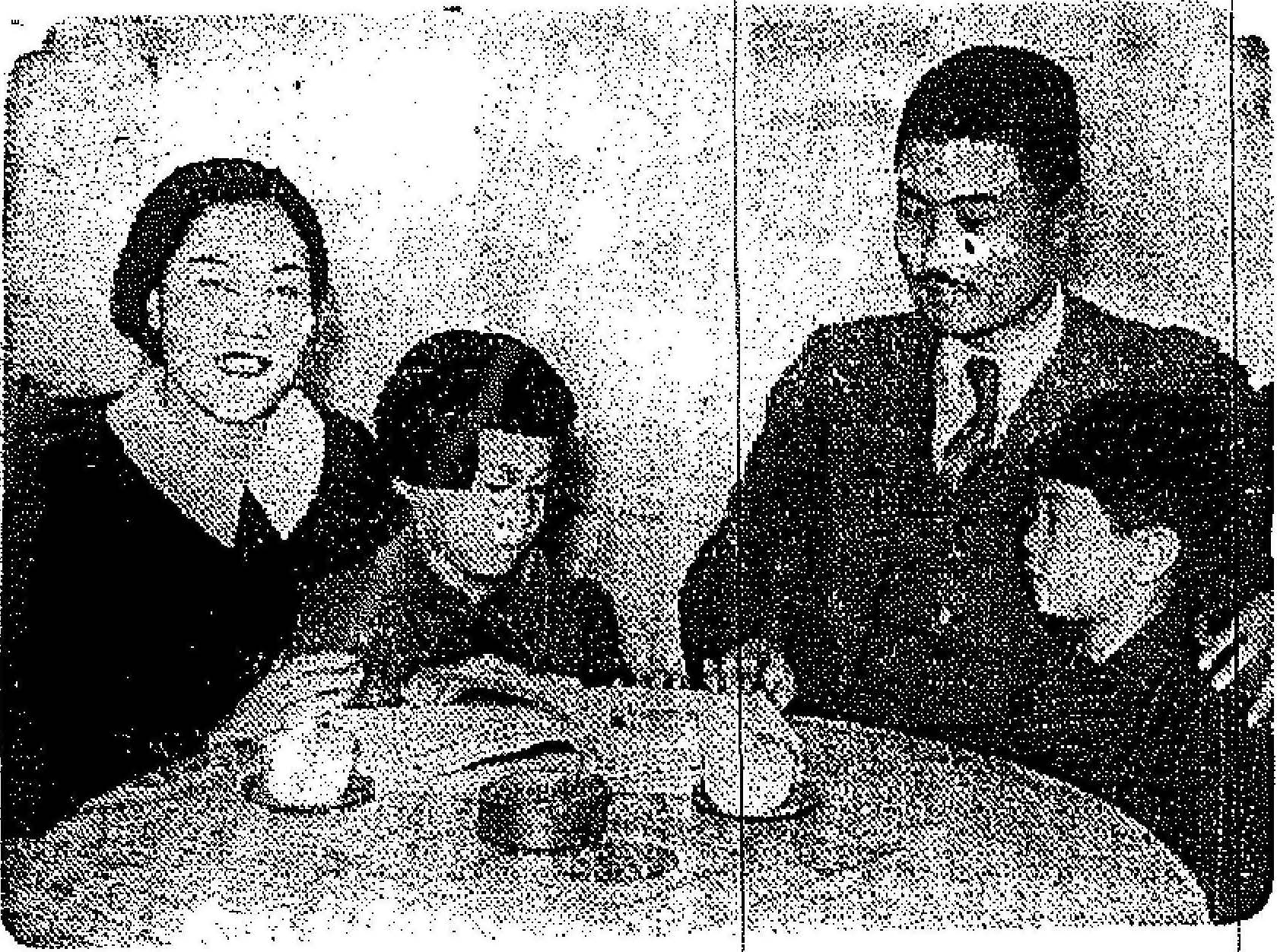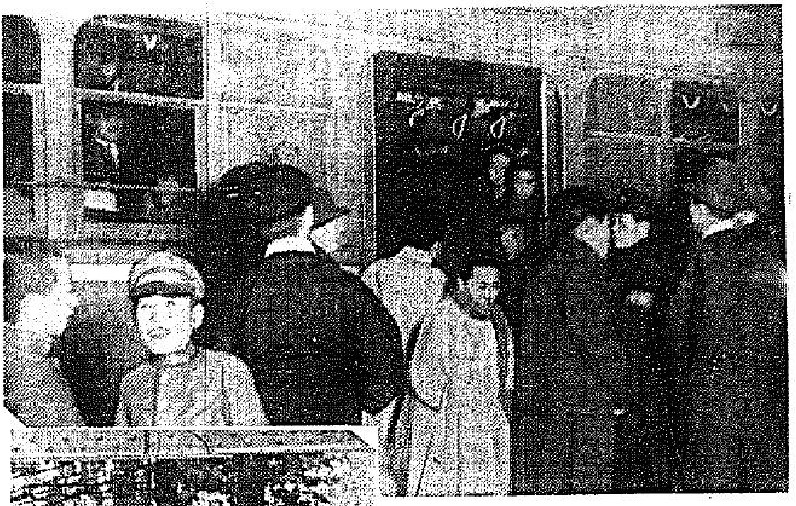
Imperial Army general describes crowded movie theaters and cafes in Myeong-dong where Japanese and Korean ‘young people in flashy overcoats would flow into coffee shops, chatting with their friends using exaggerated American gestures’ in his January 1943 essays about daily life in Seoul
2023-01-23
341
1958
I found these four ‘slice-of-life’ personal essays written by an Imperial Army general in the Imperial Army press department describing his personal thoughts and observations about life in Seoul, which ultimately veer into propaganda exhortations for Korean youth to come to their senses.
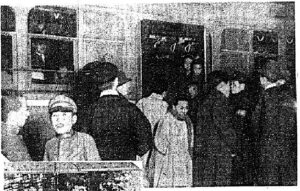
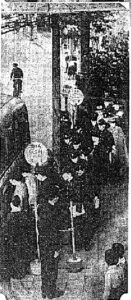
- In the first essay (January 16), the author describes how he sweeps the streets every morning and criticizes the perceived bad manners of the passersby, as well as the uncleanliness of Seoul in general.
- In the second essay (January 17), the author exhorts people to reduce food and energy waste by throwing away less, even if it means eating the leaves of daikon radish.
- In the third essay (January 18), he complains about how crowded the streetcars are and how people should walk whenever possible, railing against drunk passengers and idle people who take the streetcar just to hang out at cafes.
- In the fourth essay (January 19), the author describes the bustling scenes at coffee shops, cafes, and movie theaters where Japanese and Korean young people freely mix, which the author is not very happy about. He gets very judgmental, declaring that coffee shop fans must be exterminated somehow.
This is an ominous prelude to what would follow later on in 1943 and 1944, when jazz music would be banned in cafes, bars, and restaurants (February 1943), and cafes would be raided to catch ‘idle people’ (August 1943).
(Translation)
New Year Essays by Shūzō Kuramo, Chief of the Korean Army Press Department and Major General of the Imperial Army
Sweeping the Streets (January 16, 1943)
When I wake up, I routinely sweep the street in front of my house. This is for the sake of my health, and first of all, it is very hygienic.
There is an old saying that discipline begins at the front entrance at home. A neat and tidy front entrance gives a good impression to visitors. On the other hand, if the front entrance and the street in front of the house are cluttered, then it is as though the visitors can peer into the house and see the unpleasantness inside.
There is a Senryū poem that says, “They carelessly clean the reception room for visitors”. I don’t appreciate this.
If you are going to clean anyways, then you should clean the reception room thoroughly. Especially when I look at how Korean people clean, it seems that many of them adopt careless cleaning methods.
When it comes to cleaning, you should clean every nook and cranny, and the most important thing is the finishing touches. All that cleaning will be for nothing if the finishing touches are not tidy. Even if you wipe the top of the desk clean, it will be ruined if you carelessly put an ashtray on it.
It is obvious that there are two ways to arrange things: perpendicularly or in parallel. Otherwise, it is not tidy. The house staff and housewives should remember this.
Now, let’s talk about street sweeping. I always sweep the streets every morning. Of course, people pass by while I am sweeping.
As I sweep with brooms and rakes, dust is generated. Some people, usually lazy young men or idle women, pass by with frowns on their faces. If the street is even half swept, they prefer to walk on the clean side of the street. It is obvious that these people have never cleaned the streets themselves.
There are also people like the following. When I am cleaning, they walk on the dirty side of the street that has not been cleaned yet, not on the clean side that has just been cleaned. When they walk by, they never forget to thank me for my hard work. I believe that such people have cleaned the streets before themselves, and they are very conscientious people who do not want to make the cleaned side of the street dirty.
It is human nature that no one would want to pollute something that is beautiful.
People coming from mainland Japan say that Seoul is “an incredibly dirty town”. They are always pointing out the pitifully dirty condition of the streets, with phlegm spattered everywhere, paper scraps strewn about, and finally, the public restrooms that are so dirty that you have no choice but to urinate standing right next to them.
If people in each household would take responsibility and clean up even just the street in front of their own homes, then the city would be much cleaner. At least some of the filth would disappear, and there would certainly be fewer illnesses.
Let’s clean up the streets together.
On conserving supplies (January 17, 1943)
Japan is not the only country that has supply shortages in wartime. Not only our German and Italian allies, but even the U.S. and Britain, which boasted of their material power, have recently been complaining of supply shortages, especially when it comes to food.
At first, there were some very unhappy complaints that there were not enough supplies, but these days, such complaints are not heard so often anymore. Is it because they know that it is useless to complain? I don’t know exactly what is going on, but I think that Japanese people are patiently enduring the inconveniences of daily life with the mindset of ‘never complain until we reach victory’.
As you can see, food is also in short supply these days. By the way, what kinds of measures are being taken in the kitchens to cope with food shortages? If we continue to cook the same way as we did in the past, when there was an abundance of food, then the food shortages will continue to grow.
A quick peek into the trash bin makes this point clear. The leaves of daikon radish are thrown away without a care in the world, and a lot of coal is thrown away mixed in with coal combustion scraps. It is a shame. It is wasteful both in terms of conserving supplies and in terms of the labor of the trash collectors.
If you don’t have enough supplies, then you have to use 100% of what you don’t have enough of. The leaves of daikon radish, trimmings from a sweet potato, or a piece of carrot as fine as a whisker are all fine foods. If we just concentrate on conserving rice, then we tend to forget about the other foods. If we do not make the most of what we have, then we are just not being wise enough.
Let’s send a green signal to the kitchens, telling them to switch to a wartime stance as soon as possible!
Walk! Walk! (January 18, 1943)
Not that the Railway Bureau or Seoul Railways asked me to say this, but when the trains are crowded, as they are these days, walking is the only way to go. The trains have many long-distance passengers, so it is impossible to ask them to walk, but it would be better for them to walk if they were on a streetcar. If you are in Seoul, you are encouraged to walk on your way to work in the morning and especially in the evening when you leave work.
It is a great way to stay healthy and reduce congestion.
If you are a woman or a person with children, you will have a hard time getting on the streetcar. No one is kind enough to give you priority, and the conductor would ring the departure bell even though you are in the middle of boarding the streetcar. I am amazed that no one gets hurt. We all need to be a little kinder to each other. It is just very embarrassing.
Of course, there are people on the streetcar who have some urgent business, but there are also people who seem to have nothing better to do than to go out for a cup of tea in the Honmachi area (as you can imagine from the way they talk about it). You should try to avoid riding the streetcar, regardless of whether it is crowded or not. If you walk, you will no longer want to drink tea. Such people, in particular, don’t worry about inconveniencing others at all. Let’s look at the actual situation on the ground.
One of the things that concerns me is the scene on the last streetcar. Ruddy-faced young or middle-aged gentlemen (?) would get on the last streetcar of the night together with ruddy-faced women who look like they are waitresses from bars or cafés, shamelessly reeking of alcohol. Such completely embarrassing scenes, which bring shame upon subjects of Imperial Japan in a time of war, can still be seen in Seoul.
These are disgusting scenes that I hope will disappear soon!
Maybe if the train conductor had the right to refuse boarding to such people, then the cold nightly breeze would sober them up a little.
Coffee shops, bars, cafés, movie theaters, etc. (January 19, 1943)
I’m not sure how to say this, but let me try to explain. I have no intention of interfering with the business of the coffee shops, bars, cafés, and movie theaters, but I am amazed at how prosperous they are these days.
The coffee shops are packed as soon as they open at around 10:00 a.m., and they continue to be packed until they close. The majority of customers are young people of working age.
When the cafés open for business in the evenings, there are bustling scenes of activity showing ‘Japanese-Korean unification’. However, I am not very happy to see ‘Japanese-Korean unification’ being practiced in such places.
It is no different at movie theaters, where people wait in long lines even before the doors are opened.
Why in the world are the entertainment businesses so prosperous? It makes me feel somewhat ashamed.
Especially on the busy streets of Honmachi and Myeong-dong, young people in flashy overcoats would flow into coffee shops, chatting with their friends using exaggerated American gestures.
They listen to music records, drink coffee and tea (the drinks at such coffee shops don’t even taste good these days), and kill precious time. What a waste. It is true that not all of them are idle people, but most of them certainly are.
I hope that these young people, whose blood ought to be boiling with inspiration, will come to their senses in a big way about the current situation. It is not that there is anything wrong with going to such places. However, I believe that the so-called coffee shop fans (silverfish) must be exterminated somehow. Comfort and entertainment are not easily available at bars and cafés. That is indeed the reality of “Japan at war today”. Even if we have to do without comforts for one or two years, or even for 50 or 100 years, that is something that we must endure.
We must close our eyes and strive for victory.
This is our present mission. We must only move forward. What can we do in the time that we usually spend at the coffee shop? If you have free time to drink alcohol with women and other such nonsense, then use that time to accomplish something else instead. The scale of my outrage at the apathy of some of the youth is proportionate to the scale of the mission that is entrusted to them.
I pray that the youth of the entire nation will rise up to the occasion.
Source 1: https://www.archive.org/details/kjnp-1943-01-16
Source 2: https://www.archive.org/details/kjnp-1943-01-17
Source 3: https://www.archive.org/details/kjnp-1943-01-18
Source 4: https://www.archive.org/details/kjnp-1943-01-19
(Transcription)
新春随想 倉茂周蔵 朝鮮軍報道部長、陸軍少将
道路掃除 (1943年1月16年)
私は起きると、習慣として家の前の道路を掃除する。これは健康のためだし、第一衛生的に甚だよろしい。
昔から躾は入口からということがある。玄関口がきちんと整理整頓してあることは外来者によい印象を与えるだろう。反対に、玄関口や家の前の道路が散乱していると、どうも家のなかまで見透かされたようで気持ちの悪いものだ。
川柳に「居候かくい座敷を丸く掃き」、というのがある。これは感心しない。
せっかくやるなら、かくい屋敷は角く掃除してもらいたいものだ。特に半島の人の掃除ぶりをみると、このかくまる式が多いようだ。
掃除というからには隅から隅までやるべきである。そして肝腎なのはこの仕上げだ。せっかく掃除しても仕上げの整頓が悪ければ何んにもならない。机の上を綺麗に拭いても、その上に煙草盆を出鱈目に置いたのではぶちこわしだ。
物を置く、置き方はわかりきったことだが、直角か、平行かの二つである。それ以外は整頓にならない。給仕君や主婦たちはよく覚えておいて頂きたい。
さて、道路掃除である。私はきまって毎朝掃除をする。道路だからもちろん掃除中にも人が通る。
箒や熊手でせっせと掃いていると埃もたつ。この埃を嫌いな顔をして通り抜ける人がある。のらくらの青年か、有閑らしい御婦人にきまっている。そしてこの人たちは、もし道路が半分でも掃除してあれば、その綺麗な側を好んで通る。自身で掃除などをしたことのない人だな、ということがよくわかる。
またこんな人もある。私が掃除をしていると、開いた方の綺麗な方は通らないで、まだ掃除してない方を歩く。そして、通り抜けるときに、御苦労さんの一言を忘れない。こんな人は自分でも掃除したことのある人だし、綺麗になった道路はなるべくよごしたくないという甚だ心掛けのよい人だと思っている。
美しいものは誰もよごしたくないのは人情だ。
京城の街は内地から来た人にいわせると「あきれかえるばかりによごれた町」である。そこかしこに痰が吐き散らしてあったり、紙屑が散乱していたり、遂には共同便所の横で立小便をせざるを得ないほどの哀れむべきよごれ方であると決まって指摘される。
一軒の家が責任を待って自分の家の前の道路だけでも綺麗にすれば、街は明粧され、不潔さの幾分かはなくなり、確かに病気も減ってくると思う。
みんなで街を綺麗にして見ようではありませんか。
物の節約に就いて (1943年1月17年)
戦争になって物が不足するのは日本だけではない。盟邦独伊はもとより、あの物質力を誇った米国や英国でさえ最近は物不足、特に食糧不足で悲鳴をあげているようである。
最初はものが足らぬと随分不満な苦情の声もあったが、最近ではその声をあまり聞かなくなった。言っても無駄だから、言わないのか。足らぬ中を不平をいわずに切り詰めてやり抜こうというのか、そこのところははっきり判らぬが、日本人なら「不平はいわぬ、勝つまでは」の気持ちで日常生活の不便をじっと耐え忍んでいることと思う。
なるほど、食料品も最近はかなり不足している。ところでお台所の方では不足した食料品にどういう手段をとっているかが問題だ。あり余った昔と同じような料理方法を考えては、足らない品物はますます足らなくなる。
ちょっと塵芥箱を覗いて見ると、このことがはっきりわかる。大根のなっぱが平気で捨ててあったり、石炭の燃焼屑の中に多くの石炭が混ざって捨てられたりしている。惜しいもんだ。物の節約という点からも、塵芥運搬人の労力から考えても、共に無駄なことである。
物が足らなければ足らないものを百パーセント利用しなければならぬ。大根のなっぱも甘藷の切れっぱしも、ヒゲのように細かい人参の一本でも立派な食料だ。お米だけを節約しても、副食物の方はとんと忘れがちである。生かして物を利用することをしないで足らぬ足らぬでは、これは智恵が足らぬと申しあげるほかはない。
戦時生活への切り替えを示す青いシグナルを、一日も早くお台所に揚げて頂きたい。
歩け!歩け! (1943年1月18年)
別に鉄道局や京電から頼まれたわけではないが、最近のように乗車物が混雑するときには歩くに限る。汽車は長距離客が多いので、これは歩けというのが無理だが、電車ならもっと歩いた方がよさそうだ。京城市内なら、朝の出勤も、殊に退勤退社の夕方などは、大いに歩いて頂きたい。
健康と混雑緩和に一策であること間違いなしである。
婦人や子供づれの人が電車に乗ろうとすれば、これは一苦労である。誰も優先的に乗せてくれるような気の利いた親切な人もいないし、乗りかかっているのに車掌も平気で発車のベルをならす。よく怪我をしないものだと感心させられる。もう少しみんなお互いに親切にしなくちゃ。まるでこれではお恥ずかしい次第である。
電車に乗っている人の中には、もちろん忙しい用件の人もあろうが、どう見ても用のなさそうな、本町あたりにお茶でも飲みに行こうという恰好(これは連中の話ぶりで想像出来る)の人がある。これなんか混雑しているようとなかろうと電車など遠慮すべし。歩いて行けばお茶など欲しくなくなること請合だ。こんな徒輩に限って人の迷惑なんかちっとも考えない。実際どうかと思う。
どうかと思うことの一つに終電車風景がある。赤い顔をした若いあるいは中老の紳士(?)が、これもまた赤い顔をしたバーやカフェーの女給らしきものと、平気で酒の匂いを発散させながら乗り込んで来る。戦時下の日本帝国臣民としては全くお恥ずかしい風景がいまだに京城にはある。
”早く消えて欲しい嫌な風景だ”
こんなのは車掌に権利を持たせて、乗車お断りとやれば冷たい夜風で少しはこたえるかも知れない。
喫茶店、バー、カフェー、映画館など (1943年1月19年)
いや全く何と申してよろしいか。これでは困ります。喫茶店やバー、カフェー、映画館の営業妨害をするつもりはいささかもないが、最近この方面の盛況ぶりには漫ろかされる。
午前十時ごろ、開店と同時に喫茶店は満員となり、閉店までつづく。若い働き盛りの青年がお客さんの大多数を占めている。
カフェーはこれまた夕方の開店を待ちかねるようにして賑やかな内鮮一体風景を描く。こんなところの内鮮一体はあまり嬉しくはない。
映画館も御多分に洩れず開場前から一列励行の長蛇の列。
一体全体、何故かくもかかる享楽面が繁栄するのか。私はいささか情けない気持ちになる。
特に本町や明治町あたりの目貫街で、派手なオーバーを着た若い青年たちが、大げさなアメリカ式の身振りでその友人と語り合いながら決まって喫茶店へと流れ込む。
音盤を聞き、コーヒー、紅茶を(最近はこれら喫茶店の飲物は決して美味ではない)飲みつつ貴重な時間を潰している。勿体ない話だ。全部が全部これら閑人ばかりではないことは事実だが、ほとんどが閑人であることに間違いはない。
時局柄、奮起すべき熱血のたぎっている青年層の大きな自覚を望む。こんなところに行くのが悪いというのではない。しかし、いわゆる喫茶店ファン(銀魚)は何とか退治しなければならぬと思っている。慰安や娯楽はバーやカフェーに転がってはいない。まして『決戦日本の現在』だ。一年や二年、よしんば五十年百年慰安がなくても我慢しなければならぬ。
目をつぶって必勝へ。
これがわれわれの現在の任務だ。ただ前進あるのみだ。喫茶店でトグロを巻くひまに何かすることはある。女ども相手に酒など悪意味に飲む暇にやることは果して頂きたい。青年に課せられた今後の使命が大きければ大きいほど一部これら青年の無気力さには憤慨せざるを得ない。
いざ全国青年の奮起を祈ってやまない。
